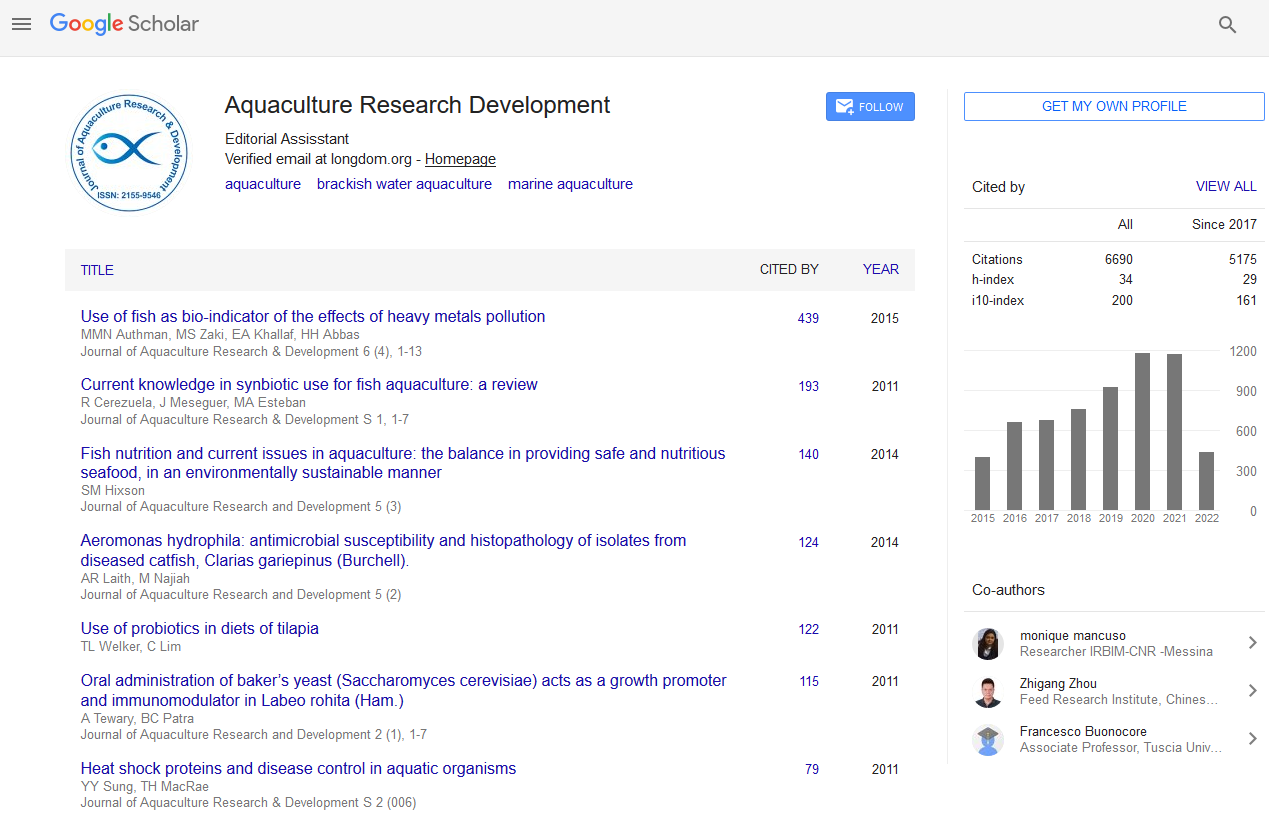PMC/PubMed Indexed Articles
Indexed In
- Online Access to Research in the Environment (OARE)
- Open J Gate
- Genamics JournalSeek
- JournalTOCs
- Scimago
- Ulrich's Periodicals Directory
- Access to Global Online Research in Agriculture (AGORA)
- Electronic Journals Library
- Centre for Agriculture and Biosciences International (CABI)
- RefSeek
- Directory of Research Journal Indexing (DRJI)
- Hamdard University
- EBSCO A-Z
- OCLC- WorldCat
- Scholarsteer
- SWB online catalog
- Virtual Library of Biology (vifabio)
- Publons
- MIAR
- University Grants Commission
- Euro Pub
- Google Scholar
Useful Links
Share This Page
Journal Flyer

Open Access Journals
- Agri and Aquaculture
- Biochemistry
- Bioinformatics & Systems Biology
- Business & Management
- Chemistry
- Clinical Sciences
- Engineering
- Food & Nutrition
- General Science
- Genetics & Molecular Biology
- Immunology & Microbiology
- Medical Sciences
- Neuroscience & Psychology
- Nursing & Health Care
- Pharmaceutical Sciences
Gender: A perspective for the development of small scale aquaculture in Cuba
2nd Global Summit on Aquaculture & Fisheries
July 11-13, 2016 Kuala Lumpur, Malaysia
Hernandez Marisela, Silveira Raquel, Delgado Gilma, Jaime Barbarito, Arencibia Gustavo and Hernandez Damaiky
Centro de Investigaciones Pesqueras, Cuba
Posters & Accepted Abstracts: J Aquac Res Development
Abstract:
The participation of women in the economy, especially in the labor market and its potential contribution to development, we must analyze it as an integrated and comprehensive system approach. In Cuba, deep economic, political and social changes that have occurred have affected in a comprehensive manner the women�?´s rights. However in rural areas, "where there is a masculinization of the main economic activities, including fishing, are evident, there exist a contempt for women working in these types of tasks based on the idea that they are less productive than men". It is now of high priority on the island to encourage full employment formula, which contribute to boosting growth rates of the national economy and that in parallel guarantee a healthy ecosystem, to obtain healthy animals and to safeguard population health. Cuban aquaculture is of a great importance for the country, as it is the prospect of future development in the fishing industry. Aquaculture represents not only the supply of animal protein for the population, but also contributes to increasing exports. The present study analyze those zones where a high percentage of women are present and still do not have an employment relationship; those areas, with geographical conditions and potentiality for development of rural aquaculture, allow sustainable marine species farming to develop small-scale coops, providing to women to be inserted into a domestic form economy in social life. This will contribute to improve the livelihoods and food security.
Biography :
Hernández Marisela has received her Graduate Degree in Social Sciences in 1983, specializing in Management, Sociology, Quality Management and Business by Graduate and Diploma courses. She has leading consultancies in Colombia and Haiti on socioeconomic aspects in fishing communities of little economic development. She has participated in research projects linking social experience to aquaculture and fisheries research and participated in international projects related to the Protection and Conservation of Sea Turtles (WWF) and the present is a member of Project Development of sustainable aquaculture in Cuba, developed between the Fisheries Research Centre of Cuba and the Centre for Development Cooperation in Fisheries (CDCF)/Institute of Marine Research (IMR) Norway. Currently, she is the Deputy Director of Fisheries Research Center..
Email: marisela@cip.alinet.cu


